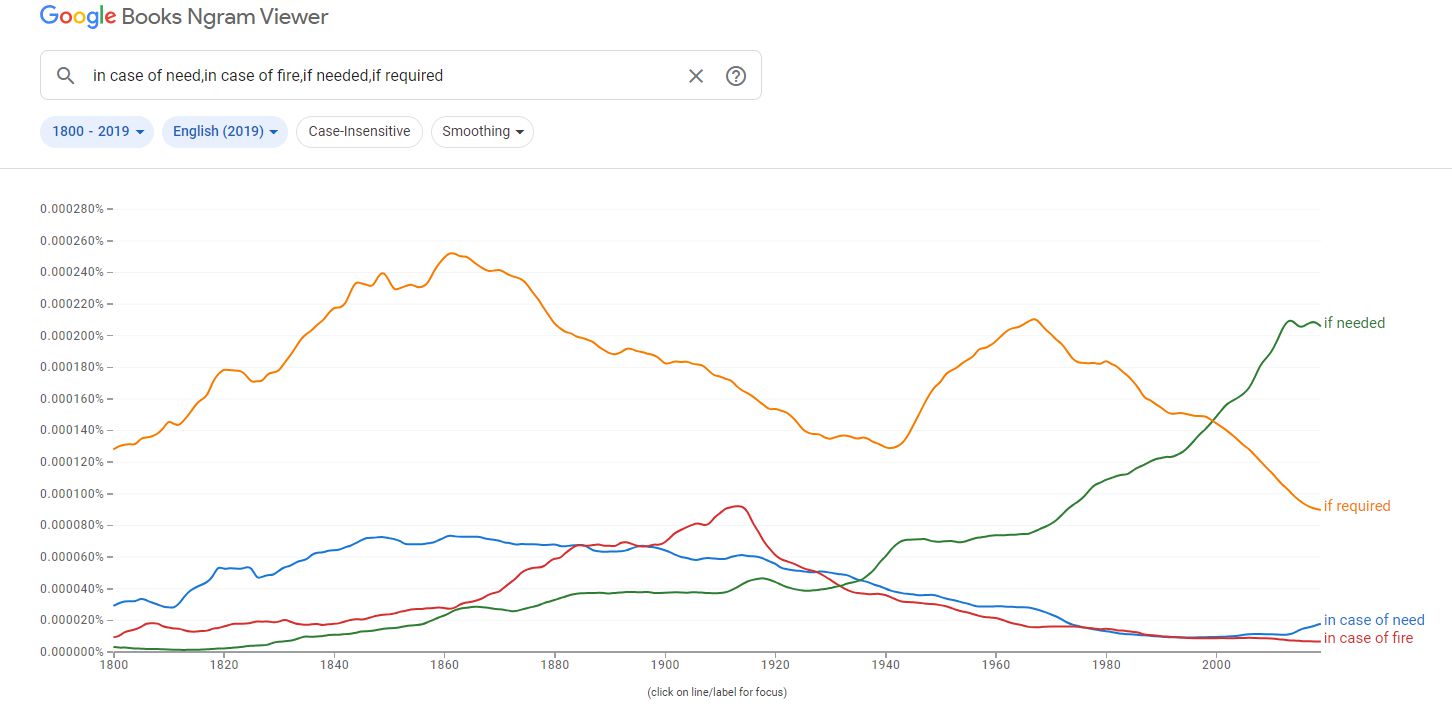Google ngrams show the trends I'd expect:

[a] 'in case of fire' is included as a related example, as it was a common label above 'break-the-glass' fire alarms in public buildings, certainly in the UK
[b] results for examples filtered for Google's US- and UK-based corpora are quite similar, though the expression 'in case of' does seem even rarer in the US sample.
The results strongly suggest that the 'in case of [eventuality, usually undesirable]' prepositional phrase is nowadays rare, and arguably getting rarer (so dated).
'In case of need' is certainly highly formal, and 'if needed/required' or 'if the need arises' would be used nowadays even in government departments. It's perhaps an unusual example (among rarities!) as 'need' is usually thought of as being durative rather than inchoative, but 'if the need arises' shows that the inchoative usage is also fine.

